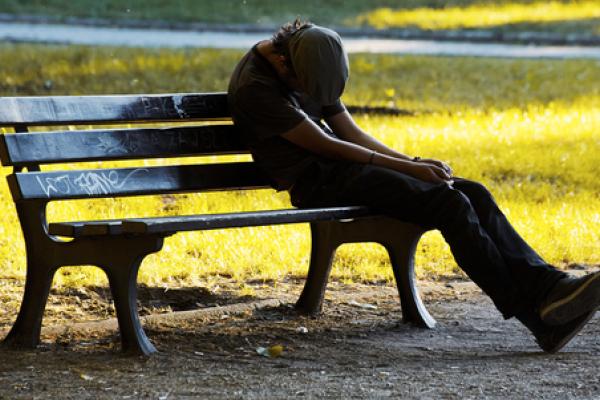I got a glimpse into the politics of scorn this week.
The visual was a photo accompanying a New York Times article on rental properties in Memphis, Tenn. The article itself seemed innocuous, about how foreclosed homes are being scooped up by outside investors and turned into rentals.
The photo, however, was troubling. It showed a young man lazing in a large chair while his two children stared numbly at a television screen and his wife tapped away on a cell phone.
I have no clue into this family’s character. But the visual screamed: “Idle! Lazy!”
I doubt that this scream comes close to a full and fair assessment. This is probably just a young family trying to make its way in the world.
But I imagined someone raised in a different era looking at this image and feeling scorn. Asking, “What’s wrong with this younger generation? Why aren’t those children out playing, the way we once played?”
I think responses to such images are feeding a conservative backlash against programs to help the vulnerable. The message we hear is that it’s time to stop these lazy sponges.
In the same way, others look at Tea Party partisans and see old, white and angry people wearing silly costumes and trying to restore an era when they were younger and the country was whiter.
Neither response gets close to knowing who “these people” are and what they need. In the politics of scorn, actual people become caricatures. But that’s fine for our politicians, who immediately pounce on the images and turn them into weapons for turning scorn into retribution.
The political class harvests votes at both ends. They allow banks to take insane risks and to foreclose with impunity. They refuse to develop initiatives that would put young Americans to work, and deny opportunities to immigrants who want to work. They cut school funding and summer education programs.
Then they hold up the victims of their cruelty as poster children for all that is wrong. Cut even more! they shout. These layabouts don’t deserve our help!
The politics of scorn produces policies that hurt people, then portrays the wounded as victims of their own sloth or weak character.
This sickness runs rampant in our land. The fortunate look down on the disadvantaged even though their own greed and shortsightedness denied others access to advantages.
When children come to school too hungry to learn, we can feed them and try to ameliorate chaotic home lives, or we can ignore their hunger, watch them fall behind, and then blame them for being a drag on the economy.
Or when 55-year-old workers are laid off or retirees lose benefits because poor managers squelched innovation or squandered resources, we can step in to help or we can mock their rage and sense of betrayal.
All that matters in the politics of scorn is that I blame you for being you, and I refuse to see how I contributed to your negative situation.
We should be acknowledging the fundamental reality — true in any system, and certainly true in our American economic and political systems — that we are “all in this together,” that everything we do has an impact on someone else, and that unintended consequences are more likely than planned outcomes.
Instead, we deny the impacts of our behavior. And we turn vengeful when those impacted by us prove troublesome.
No wonder we are so divided.
Tom Ehrich is a writer, church consultant and Episcopal priest based in New York. Via Religion News Service.
Got something to say about what you're reading? We value your feedback!
